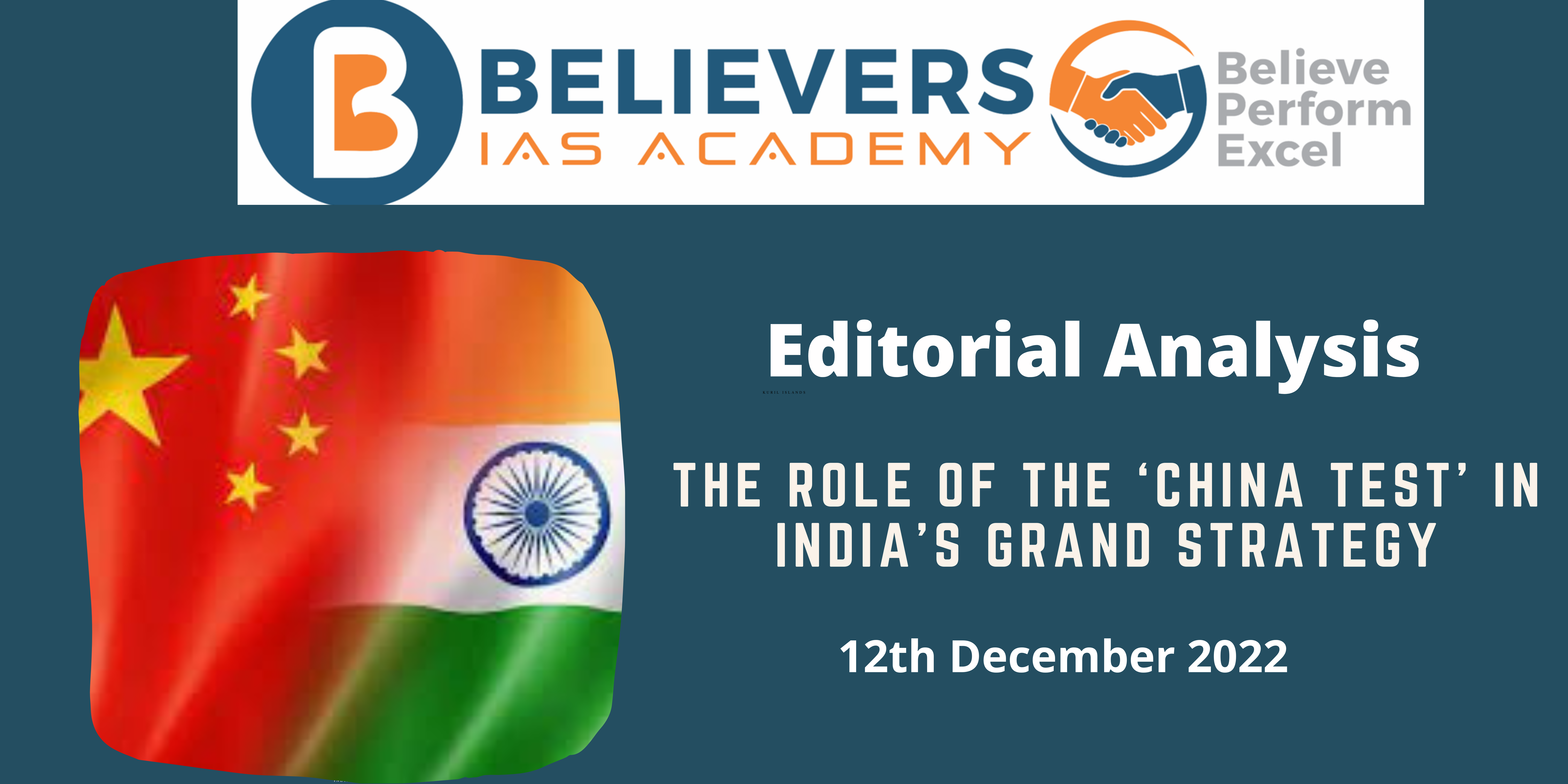The role of the ‘China Test’ in India’s grand strategy
#GS 02 International Relations
For Mains
Concept of a principal contradiction:
- The concept of a principal contradiction means the one that poses the most intense challenge to an individual/organisation, and has the power to shape its future choices and consequent outcomes.
- It is a useful method of optimising and prioritising strategic decision-making.
- China is contemporary India’s principal strategic contradiction.
- Every other challenge, be it Pakistan, internal insurgencies, and difficulties in relations with its neighbours, fall in the category of secondary contradictions.
China Test of Indian foreign policy:
- A perspicacious ‘China test’ can help prioritise strategic decision making in the longer run, at least as an analytical tool with potential policy utility.
- From an operational point of view, the ‘China test’ consists of three distinct elements.
- First, an assessment of how a certain Indian decision or a specific regional development squares with Chinese regional strategy or interests.
- Second, an assessment of whether India’s decision or a certain regional development would require India to make modifications at the level of secondary contradictions.
- And third, an assessment of whether this would require any major policy changes
China Test in India US Relations:
- India’s standoff with China along the Line of Actual Control in 2020 was perhaps a consequence of India’s growing proximity to the S.
- Given that Beijing seeks to dominate the region, it is clearly not in its interest to see an American reengagement of the region or growing India-U.S. proximity.
- A China test would suggest that New Delhi should not give into the short-term temptation of not being on the wrong side of China given its long-term implications.
- What India should actively seek is not a balance of power in South Asia with Pakistan but balancing Chinese power in Southern Asia.
- Hence, India’s objective in South Asia should be to seek a pacification of conflicts with Pakistan, so that it can focus on China.
- Similarly, India need not oppose the American engagement of Pakistan for the same reason it helps prevent Pakistan from going into the China camp
China Test in India Russia Relations:
- India-Russia relations in the wake of the Ukraine war are among the most debated bilateral relationships in the world today.
- China Test on India Russia relations can help examine the logic behind India-Russia relations in the face of western pressure on India to decouple from Moscow.
- The U.S. and its allies would like India to stop engaging with Moscow and condemn its aggression against Ukraine.
- In return, there is on offer greater accommodation of Indian interests including perhaps diplomatic and political support against Chinese
- There is also the growing proximity between Moscow and Beijing which reduces the robustness of India-Russia relations.
- In the absence of an India-Russia relationship, the extent of Sino-Russian cooperation is likely to strengthen, and India will be cut out of the continental space to its north and west.
- New Delhi continues to get discounted energy, cheaper defence equipment, support at the United Nations Security Council, and Moscow has been understanding of New Delhi’s ‘political sensitivities’ more than its western partners.
- If India decides to break away from Russia, many of these could come to a grinding halt, and the natural beneficiary of such an eventuality will, undoubtedly, be China.
- This could also push Moscow towards Pakistan with or without some nudging from Beijing.
- Moscow is not keen to have China dominate the strategic space around it and has been keen to balance the growing influence of China in Central Asia with partners such as New Delhi.
- New Delhi’s turn away from Moscow will ensure that China gets a free hand in Central Asia




